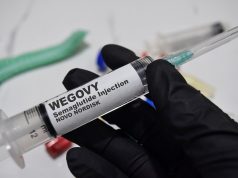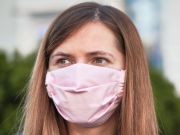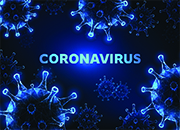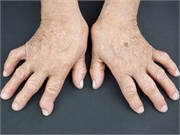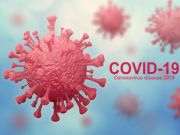Large-Vessel Stroke Described in Young Adults With COVID-19
Five patients younger than 50 years presented with large-vessel stroke during two-week period in NYC
Men Have More Serious Disease, Higher Death Rate From COVID-19
Number of men in deceased group was 2.4 times higher than women in public dataset from China
Pandemic Disrupting Health Care for 55 Percent of Older Adults
One in five older adults reported trying telemedicine; 49 percent find it comparable to an in-person visit
Symptomatic Health Care Staff in U.K. Screened for COVID-19
Shift in transmission dynamics noted as of March 24, concurrent with steps to implement social distancing
Study Explores Outcomes Valued by Glomerular Disease Patients
Highly ranked outcomes for patients and caregivers include kidney function, survival, but also fatigue
Many Health Care Workers Face Risk for Poor Outcomes With COVID-19
26.6 percent of health care workers with patient contact at risk due to age, chronic conditions
GI Manifestations Seen for Nearly One in Three With SARS-CoV-2
Significant portion have diarrhea, nausea, vomiting, and/or abdominal discomfort before respiratory symptoms
USPSTF: Behavioral Interventions Likely Prevent Tobacco Use
Primary care-feasible behavioral interventions have moderate net benefit for school-aged children
Rheumatoid Arthritis Patients Remain Unaware of CV Risk
Further, rheumatoid arthritis patients report low rates of counseling by physicians
Thromboembolic Complications in COVID-19 Discussed
All hospitalized COVID-19 patients should be started on prophylactic low-molecular-weight heparin




